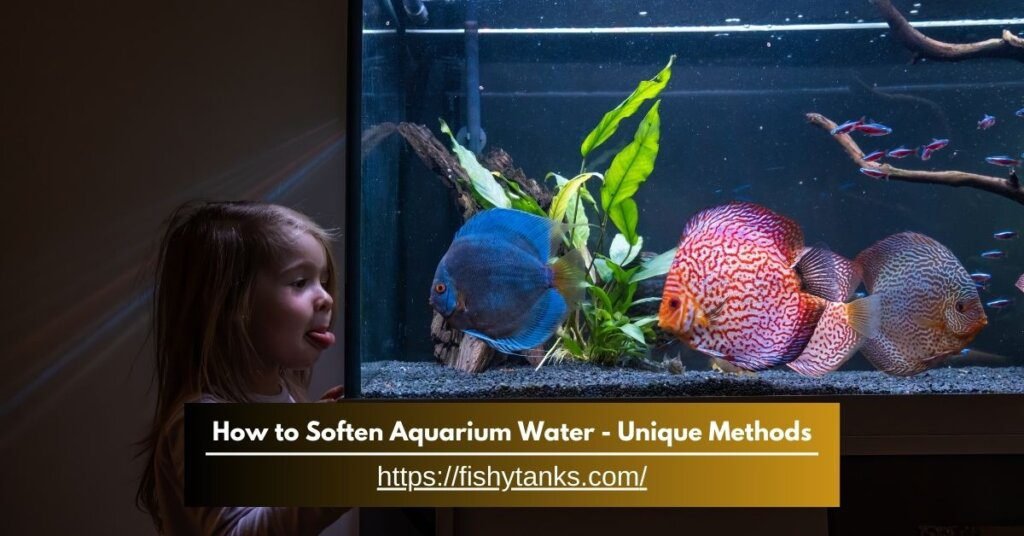Aquarium water softening is an important part of keeping your fish healthy and happy. Hard water can cause problems for your fish, like mineral buildup and pH imbalance. Soft water, on the other hand, is gentle on your fish and helps them thrive. But how to soften aquarium water easily. There are several unique methods to do so. Some methods use special equipment, while others use natural materials. In this article, we will explore different ways to soften aquarium water. In this article, let us describe the advantages and disadvantages of each approach. By the end of this article, you will know how to keep your aquarium water soft and your fish healthy. Softening aquarium water is easier than you think, and with the right methods, you can create a perfect environment for your fish. With the right techniques, you can keep your aquarium water soft and your fish happy and healthy.
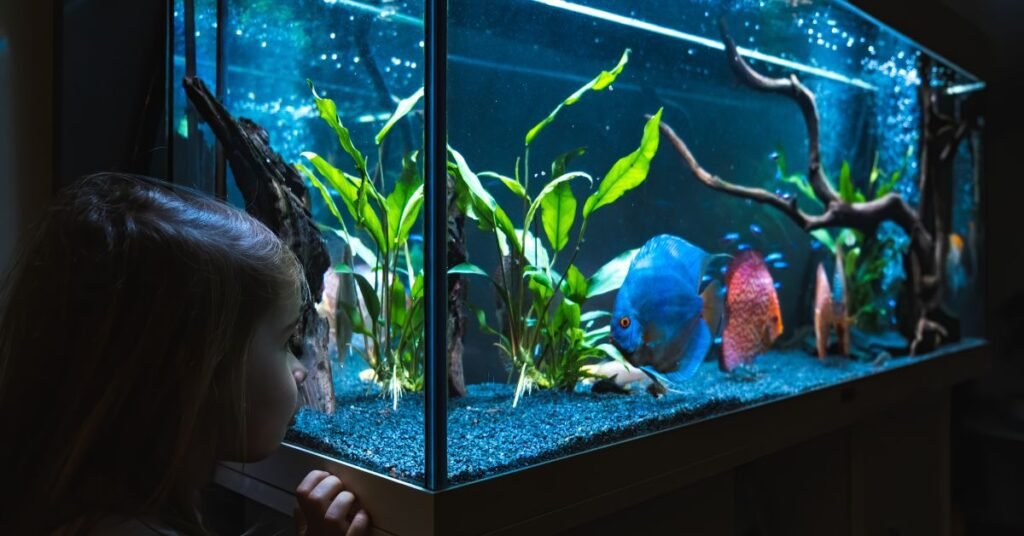
What is Temporary Water Hardness?
Temporary water hardness is a type of water hardness that is solved in a very short time. It is caused by dissolved carbonates, such as bicarbonate and carbonate, which come from natural sources like rocks and soil. These carbonates can be removed from water through boiling or treatment with chemicals. Temporary water hardness is also known as “carbonate hardness” or “alkalinity”.
Temporary water hardness is not a big problem for aquariums because it can be easily removed. In fact, many aquarium owners actually want some temporary water hardness in their tanks because it helps to stabilize the pH and keeps the water from becoming too acidic.

What is Permanent Water Hardness?
Permanent water hardness, on the other hand, is a type of water hardness that cannot be easily removed. It is caused by dissolved minerals like calcium and magnesium, which come from natural sources like rocks and soil. These minerals can only be removed from water through treatment with special equipment, like reverse osmosis or deionization systems.
Permanent water hardness is a bigger problem for aquariums because it can cause mineral buildup and pH imbalance. High levels of calcium and magnesium can also stress out fish and other aquatic animals. Permanent water hardness is also known as “general hardness” or “GH”.
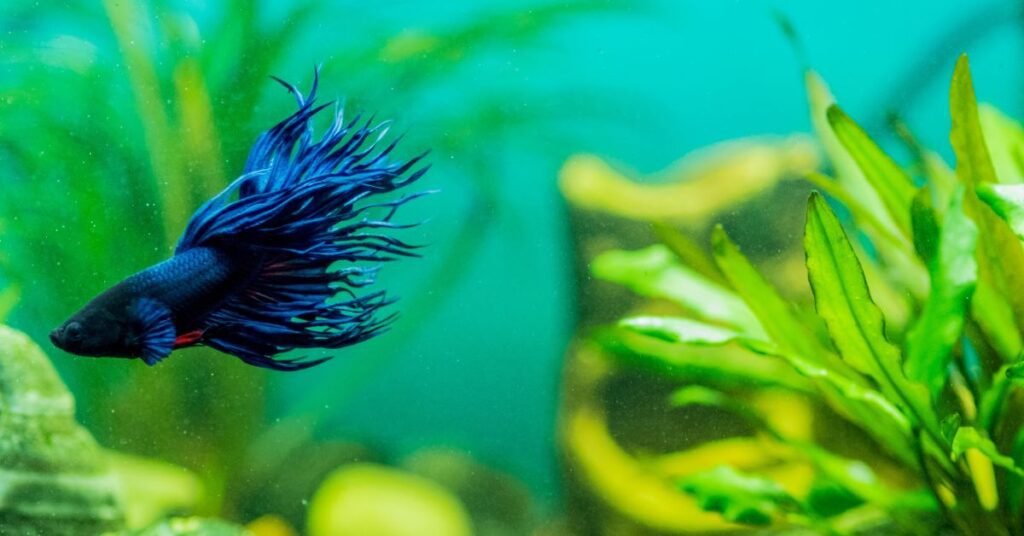
Why Soften Your Aquarium’s Water?
Softening your aquarium’s water is important for your fish’s health. Hard water can harm your fish and make them sick.
It also contains a large composition of minerals such as calcium and magnesium. These minerals can build up in your fish’s body and cause stress and illness.
Soft water, on the other hand, is gentle on your fish. It contains low levels of minerals, making it easier for your fish to breathe and live happily.
Soft water also helps keep the pH level stable, which is important for your fish’s health. Hard water can make it difficult to keep the pH level stable, causing problems for your fish.
Softening your aquarium’s water can also prevent algae growth. Algae are tiny plants that can grow in your aquarium and make the water cloudy.
Hard water can encourage algae growth, making your aquarium look dirty and unhealthy. Soft water can help avoid algae growth, keeping your aquarium clean and clear.
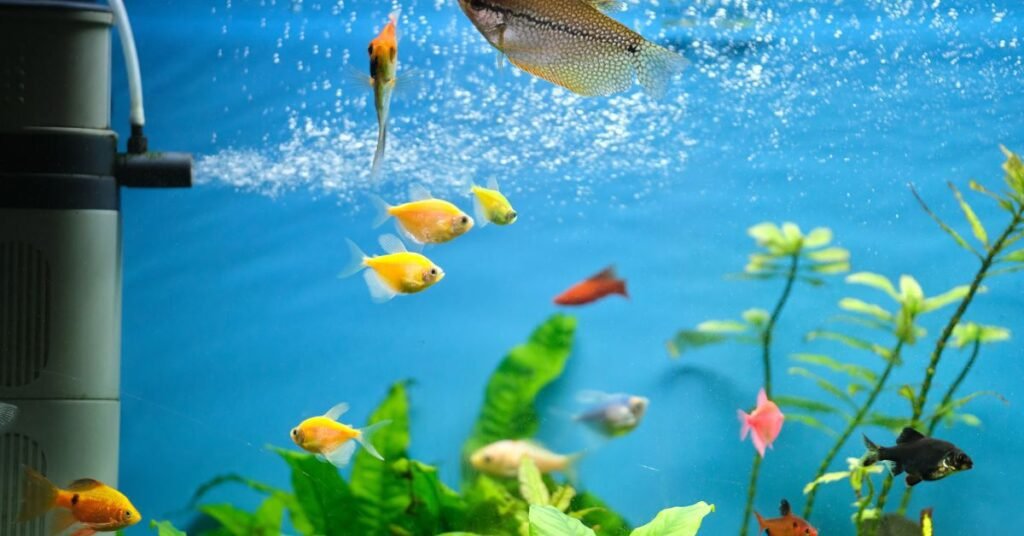
How to Check Your Aquarium Water Is Hard or Not?
Checking if your aquarium water is hard is important for your fish’s health. Hard water can cause problems for your fish, like mineral buildup and pH imbalance.
To check if your water is hard, you need to test it. You can buy a water test kit at a pet store or online. The kit will have instructions on how to use it.
First, fill a tube with water from your aquarium. Then, add a special powder or liquid from the kit to the tube. Now wait for the result.
If the water turns a certain color, it means your water is hard. The color will tell you how hard it is. If the water doesn’t change color, it means your water is soft.
You can also take a water sample to the laboratory for them to analyze the content. Some aquarium stores also offer free water testing. It is a good idea to test your water regularly to ensure it is safe for your fish.
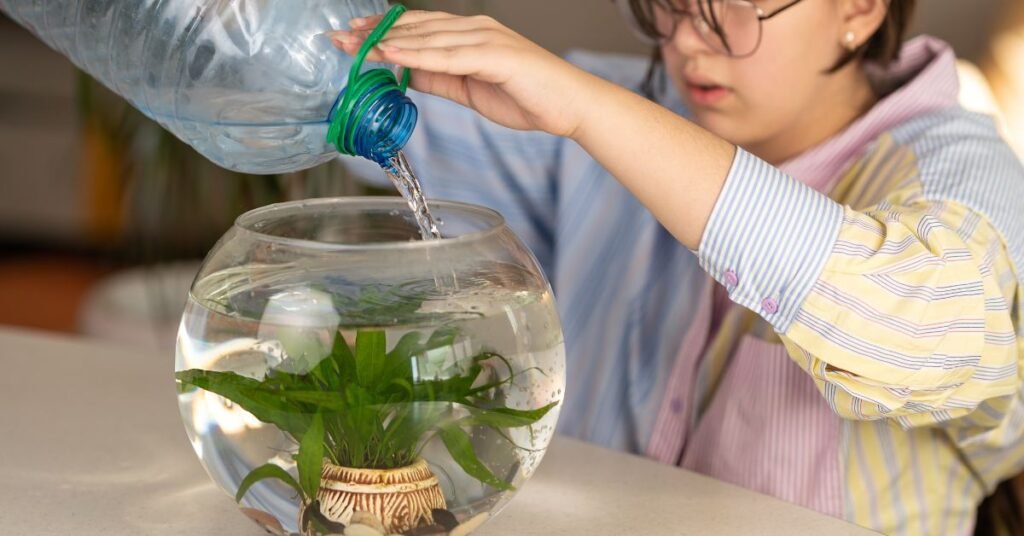
How to Soften Aquarium Water_ Unique Methods
Softening aquarium water is important for your fish’s health. Hard water can harm your fish and make them sick. But don’t worry, there are unique methods to soften aquarium water.
1. Reverse Osmosis (RO) System
This is a special machine that removes minerals from the water, making it soft. It’s like a filter that makes the water clean and safe for your fish.
2. Water Softening Resins
These are special beads that absorb minerals from the water, making it soft. They’re like magic beads that make the water perfect for your fish.
3. Peat Moss
This is a natural material that absorbs minerals from the water, making it soft. It’s like a sponge that makes the water clean and safe for your fish.
4. Activated Carbon
This is a special material that removes impurities from the water, making it soft. It’s like a superhero that saves your fish from harmful minerals.
5. Water Changes
This is a simple method where you remove some of the hard water from your aquarium and replace it with soft water. It’s like a refresh for your aquarium.
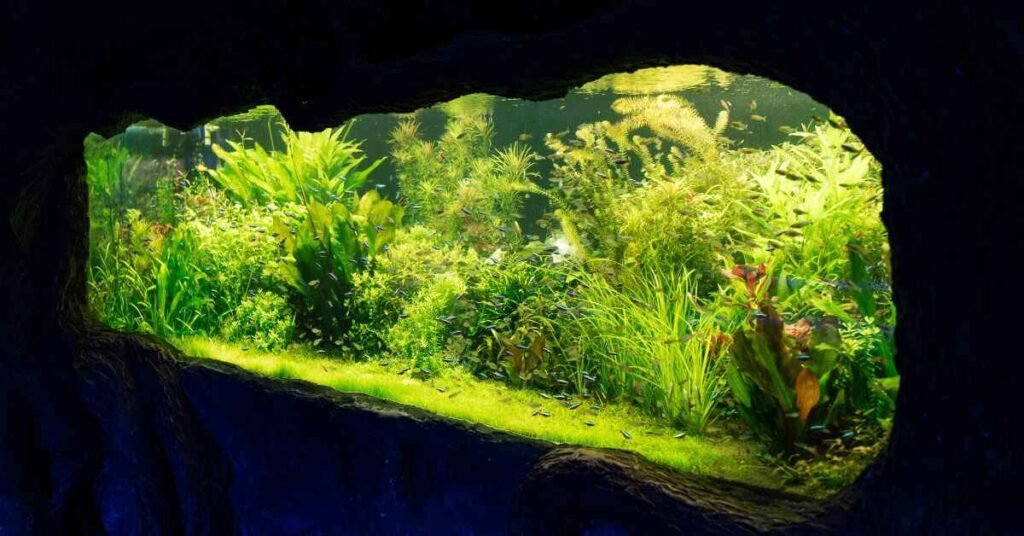
How to Soften Aquarium Water Naturally
Softening aquarium water naturally is easy and safe for your fish. One way is to use peat moss, a natural material that absorbs minerals from the water.
Add peat moss to a special container or bag in your aquarium. The peat moss will absorb minerals, making the water soft and safe for your fish.
Another way is to use activated carbon, which removes impurities and minerals from the water. Add activated carbon to a special container or bag in your aquarium.
The activated carbon will remove impurities and minerals, making the water soft and safe for your fish. You can also use water changes to soften aquarium water naturally.
Remove some of the hard water from your aquarium and replace it with soft water. This will dilute the minerals in the water, making it soft and safe for your fish.
Natural methods are a great way to soften aquarium water because they are safe and effective. They also don’t use harsh chemicals, which can harm your fish. So, try using peat moss, activated carbon, or water changes to soften your aquarium water naturally.
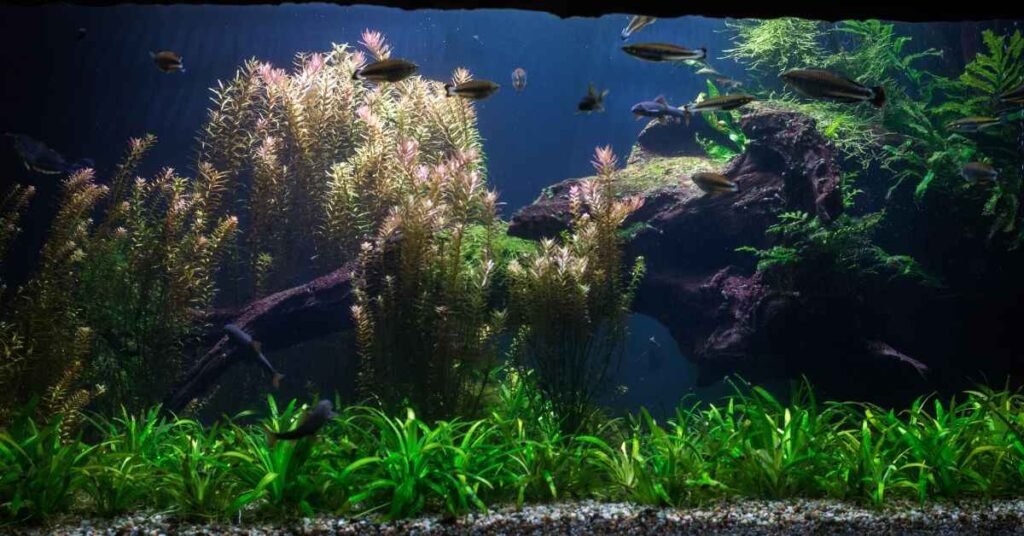
Conclusion
Softening aquarium water is important for your fish’s health and happiness. Hard water can cause stress, illness, and even fish death. But don’t worry, there are unique methods to soften aquarium water. Reverse Osmosis systems, water-softening resins, peat moss, activated carbon, and water changes are all effective ways to soften aquarium water. These methods remove minerals and impurities from the water, making it safe for your fish.

FAQ’s
Q1: Why do I need to soften my aquarium water?
A: You need to soften your aquarium water because hard water can harm your fish and make them sick.
Q2: What is the easiest way to soften my aquarium water?
A: The easiest way to soften your aquarium water is to use a water-softening resin or a Reverse Osmosis system.

Q3: Can I use natural methods to soften my aquarium water?
Yes, you can use natural methods like peat moss, activated carbon, or water changes to soften your aquarium water.
Q4: How often do I need to soften my aquarium water?
You need to soften your aquarium water regularly, depending on the size of your aquarium and the number of fish you have. It’s best to test your water regularly and soften it when necessary.
Also Must Read More: How to Raise pH in an Aquarium – Simple and Easy Methods

